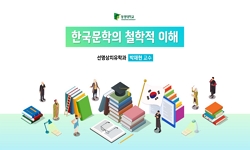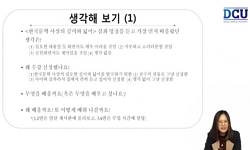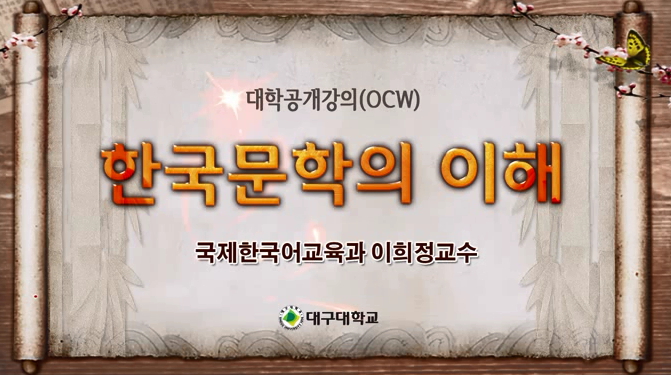The purpose of the thesis is to investigate Do Eun, Sung-In Lee's Poetry world. Sung-In Lee, one of Sam Eun, was a literary man as well as a great scholar, who passed away when Koryo Dynasty ruined after great change of dynasty. And he was worthy of n...
http://chineseinput.net/에서 pinyin(병음)방식으로 중국어를 변환할 수 있습니다.
변환된 중국어를 복사하여 사용하시면 됩니다.
- 中文 을 입력하시려면 zhongwen을 입력하시고 space를누르시면됩니다.
- 北京 을 입력하시려면 beijing을 입력하시고 space를 누르시면 됩니다.
https://www.riss.kr/link?id=T8063007
- 저자
-
발행사항
서울 : 中央大學校, 2001
-
학위논문사항
學位論文(博士)-- 中央大學校 大學院 : 國語國文學科 古典文學 專攻 2001. 8
-
발행연도
2001
-
작성언어
한국어
- 주제어
-
KDC
810.9 판사항(5)
-
발행국(도시)
서울
-
기타서명
(A)study of Do Eun, Sung-In Lee's poetry world
-
형태사항
ii, 162 p. : 삽도 ; 26 cm.
-
일반주기명
본서(등록번호:00325350)는 문화재청(2007.07.18) 기증도서임
참고문헌: p.151-162 - DOI식별코드
- 소장기관
-
0
상세조회 -
0
다운로드
부가정보
다국어 초록 (Multilingual Abstract)
The purpose of the thesis is to investigate Do Eun, Sung-In Lee's Poetry world. Sung-In Lee, one of Sam Eun, was a literary man as well as a great scholar, who passed away when Koryo Dynasty ruined after great change of dynasty. And he was worthy of notice as not only a loyalist but also a poet who reflected literature of those days.
By this time, there are only some studies on him as a poet, but some ones on his Chinese poems. I will, therefore, investigate why we place high value on his Chinese poems, based on his life and view of literature.
His life is divided into four phases. The first is the phase of pursuit of knowledge, which is the period of studying. The second is the phase of appointment. After passing the state examinations, he took an active part in politics as a Sung Kyun Kwan scholar. His ambition pride and positive attitude were shown in his works of this period. The third is the phase of trial. In his works of this phase, critical attitude and an inclination to escape from the world were found. Because he was hard hit in political activity after being exiled. The fourth is the last phase of life. In this phase, as he was exiled and returned to political world again and again, he underwent hardship politically. Therefore solitude and frustration were mainly expressed in his poems.
In his life, those who give an important effect on his scholarship are Hong Yeon-Park, Yu Suk, Lee Saek, Lee Jae-Hyun, Baek Mun-Bo, Lee In-Bok, Han Su, and Lee Gong Su. Among them, Lee Saek gave a great effect on him politically and literally. Also he had a close relation with not only Jeong Mong-Ju, Kwan Kun, Jeong Do-Jeon, Kim Gu-Young, Lee Jip and Park Ui-Jung, but also Ju Tak, Go Son-Ji, Jang Bu who were Chinese(Myung Dynasty).
The Literature atmosphere of the late period of Koryo changed into the atmosphere of Do (enlightenment). In this atmosphere, Do Eun suggested the theory of agreement of Do and Mun (literariness), which means that if we study Do first, and then naturally Mun is acquired.
Do Eun Jip, collections of his poems, was published by the King Tae Jong's ordering in 1406. There are about ten editions of it, such as Gye Mi Ja Bon, Yeon Hwal Ja Bon, and so on. This fact proves that many people in those days read his works, recognizing his excellent literary capacity.
In his 446 Chinese poems, Lee, as a confucian, shows an interest in education of the public. In the poems in which the public and customs are dealt with, Lee's love for the public is exposed. These tendencies extend over the poems on the cultural customs which are performed in the seasonal rituals and the poems on han (hatred) of women. Lee writes poems on nature, a life of seclusion, and Taoism, as well. In the meantime, wandering and frustration due to the difficulties of real life make him go to temples and recite some poems related to the temples.
There he associates with about 30 monks, which shows the agreement of tendencies of Taoic poems shown in the late of Koryo, and his view of the world based on Sung Confucianism.
I also describe his poems as dividing into items such as recognition for the reality, communication with nature, companionship, and delineation of feeling. Lee, who had a manly spirit and was devoted only to his lord, represents his frustration and pain through his poems. The poems, in which interests in nature are shown, are divided as follows: the ones on describing the scenery, on reasons for the existence of matters, and on mood created from Nature.
Literary men in Koryo and Chosun Dynasty estimated that there are subtle charms and outstanding techniques in his poems. In this respect, I analyse Do Eun's 446 poems. As a result, we know that the image ofthe poems is made by 17,937 letters: by 2,738 letters if repeated lettersare deducted from those letters. Out of those letters, the letter Il (‘一’,one) is widely used 175 times. We see in his poems that through repeated words such as Il Bae (一盃, a cup of chaser) and Il So (一笑, a smile), frustration and solitude due to real life, are changed into nothingness.
I also analyse repeated words which Do Eun frequently uses into 11 items. In consequence, I discover that he had an interest much in education of the public and a character to live a life in seclusion. Using reiterated markers (疊字or 疊韻), Do Eun shows the meaning of his poems specifically and his mental image vividly. To sum up, the poems of Lee are considered new and simple. He uses new and fresh dictions for poems and makes the poems have new and fresh meaning. For this reason, I describe Lee's poems as new and fresh. Because he does not have difficult words to understand and writes his poems understandable at once, I also regard his poems as simple.
Do Eun Lee Sung-In was not only a great writer but poet in late period of Koryo. Also he studied Sung Confucianism, so he played a bridge role for passing on Sung Confucianism into Chosun Dynasty. As a result, he was a great writer in the history of Chinese literature.
목차 (Table of Contents)
- Ⅰ. 序論 = 1
- 1. 硏究目的 = 1
- 2. 硏究史檢討 = 2
- 3. 硏究方法 = 5
- Ⅱ. 陶隱의 生涯와 陶隱集 = 8
- Ⅰ. 序論 = 1
- 1. 硏究目的 = 1
- 2. 硏究史檢討 = 2
- 3. 硏究方法 = 5
- Ⅱ. 陶隱의 生涯와 陶隱集 = 8
- 1. 陶隱의 生涯 = 8
- 1) 陶隱의 生平 = 9
- 2) 陶隱의 師友關係 = 20
- 2. 陶隱의 文學觀과 陶隱集 = 28
- 1) 陶隱의 文學觀 = 28
- 2) 陶隱集의 刊行과 流通 = 39
- Ⅲ. 陶隱의 漢詩世界 = 44
- 1. 陶隱詩의 思惟와 變奏의 世界 = 44
- 1) 思惟의 表出 = 45
- ⑴ 實踐躬行 = 45
- ⑵ 隱遁指向과 神仙憧憬 = 61
- ⑶ 脫俗的禪의 詩境 = 71
- 2) 變奏의 世界 = 82
- ⑴ 現實認識 = 82
- ⑵ 自然交感 = 88
- ⑶ 交遊와 抒情 = 97
- 2. 詩語分析과 修辭的特徵 = 106
- 1) 詩語分析 = 106
- 2) 修辭的特徵 = 117
- ⑴ 疊字 = 117
- ⑵ 疊韻 = 124
- 3. 陶隱詩의 風格 = 126
- 1) 風格의 形容 = 126
- 2) 風格의 實際 = 129
- ⑴ 淸新 = 129
- ⑵ 平淡 = 137
- Ⅳ. 結論- 漢文學史的位相을 겸하여 = 145
- 參考文獻 = 151
- 英文抄錄 = 159












